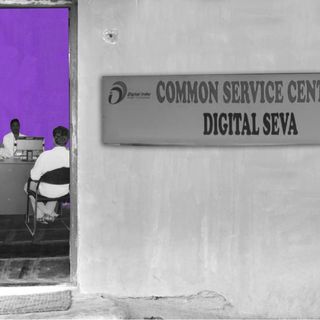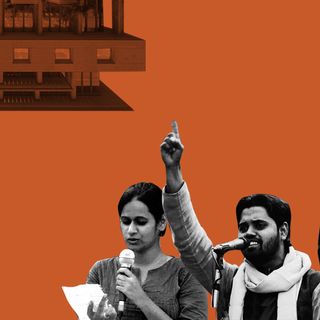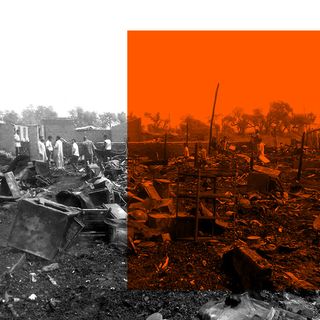On Tuesday evening, Ghaziabad police filed an FIR against journalists and politicians who commented on the intimidation and assault of a Muslim man. Claiming that the concerned tweets werestoking communal sentiments, the FIR also named Twitter as a responsible party for not taking action against the “misleading” content.
Twitter’s liability is the first practical fallout of the new Information Technology (Intermediary Guidelines and Digital Media Ethics Code) Rules, 2021 or the “IT Rules, 2021” that came into effect last month. According to reports, the government claimed Twitter has failed to comply with the new rules, rendering the platform and its employees liable for prosecution over any “unlawful” of inflammatory content by any user on the platform.
The tweets in question called attention to the assault against the assault of an elderly Muslim man in Uttar Pradesh, who said he was forced to cut off his beard and chant “Jai Shree Ram,” and urged authorities to take action. But the police claimed the incident was an internal matter due to a misunderstanding and there was no communal angle to it.
In their FIR against the posters, the Ghaziabad Police said the accused did not delete their allegedly “objectionable” tweets and Twitter did not make any efforts to delete them. Twitter, along with others, faces complaint under the Indian Penal Code sections 153 (provocation for rioting), 153A (promoting enmity between different groups), 295A (acts intended to outrage religious feelings), 505 (mischief), 120B (criminal conspiracy), and 34 (common intention) against them.
Related on The Swaddle:
WhatsApp Challenges New IT Rules Clause In Court, Says Tracing Private Messages Is “Unconstitutional”
The FIR against journalists who were reporting the incident is condemnable, threatens press freedom, and points to a larger trend of impinging on free speech. Moreover, the inclusion of Twitter in the FIR also signifies the anticipated, but worrying, implications of the new IT Rules.
Under the new IT rules, social media intermediaries like Twitter and Facebook are supposed to comply with removal requests of “objectionable content” — that can be raised by any user — if they are directed to do so by courts. Further, the rules mandate these platforms establish a grievance redressal mechanism and appoint a grievance officer.
Several activists and experts have also pointed out the new IT rules threaten the rights of these intermediaries, free speech, and privacy. Recently, musician T. M. Krishna moved the Madras High Court against the new rules, arguing that they go against the constitution and the IT Act. Media organizations like The Wire have also contested the new rules for its “vague and arbitrary nature.”
The charges against Twitter indicate a loss of the immunity granted to such platforms under Section 79 of the Information Technology Act 2000, which exempts these intermediaries from any liability for content posted by users. That is, a problematic post on Facebook or a forward on WhatsApp doesn’t make these platforms punishable; these websites are not responsible for the content posted on them. However, Rule 7 of the new IT Rules says that the provisions of Section 79 won’t apply to intermediaries if they fail to comply with the new rules.
Moreover, the Internet Freedom Foundation (IFF) notes that as per Section 79, “intermediaries are immune from liability/penalty if they comply with legal takedown requests of user posts from courts & public authorities.” But the new IT rules threaten the understanding of this immunity.
The penalty for non-compliance under the new IT rules means Twitter would be liable for penal action under the law — such as in this case. “Due to their non-compliance their protection as an intermediary is gone. Twitter can face liability for violating any Indian law just as any publisher is,” government officials told NDTV.
This effectively means that any sort of content generated on Twitter that is believed to be objectionable and “unlawful” will add them as a party or complainant. “The amount of content they would be responsible would drive the company’s operations in India nearly impossible to operate. This might force them to shut shop,”wrote Ananth Krishna Subhalakshmy.
But the current FIR doesn’t mean Twitter has “lost” its intermediary status, as is currently being claimed by several reports. Intermediary status depends on the number of users on a platform and is not something that can be revoked by the government. “The IT Act or IT Rules do not contain any power or process for grant or revocation of an intermediary status… if companies like Twitter are prosecuted, they will seek prosecution before courts which will decide if it is an intermediary, not the government,” the IFF notes.
Late last evening, Twitter said it had appointed an interim Chief Compliance Officer and would share details with the IT Ministry.




